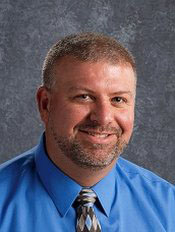JEFFERSON CITY, Mo. — Rural school districts across the state are lamenting what they see as a loss of local control of their processes and are continuing to search for the best way to evaluate teachers and school administrators.
During the last legislative session, bills were filed that sought to reform teacher tenure, evaluations for teachers and public school administrators and the state Supreme Court reaffirmed an earlier ruling on school choice.
All of these moves have rural schools maneuvering in different ways to adapt to the ever-changing landscape of Missouri public education. A primary concern for several administrators is the ability to decide their own fate.
“We make the right decisions, but is seems that DESE [Department of Elementary and Secondary Education] hears the needs of urban and suburban schools more than ours,” Darin Powell, Superintendent of Bowling Green Public Schools told The Missouri Times. “A lot of decisions lately seem a little more geared toward urban education, which is great, but our needs out here are different.”

Powell said new standards and evaluation techniques handed down by DESE during the past few years, and some currently being explored in pilot programs throughout the state, have an emphasis on college readiness that his local district does not have the same need for.
“Of course we want our kids to go to college,” Powell said. “But we’ve got a significant bloc of students who are going to be productive members of society by entering the workforce right away and taking jobs that don’t require the same level of higher education as others.”
Powell said more and more programs for high school students were designed with higher education training in mind, but his district graduates many students who do not attend traditional four-year institutions. Powell said his district would benefit from more targeted programs for technical training, or workforce development.
Rep. Rocky Miller, R-Osage Beach, former Director of the Missouri School Board Association and 13-year member of the Osage Beach School Board, said it was this lack of local control in crafting school programs that was his top priority regarding education law.
“In my experience, local communities that are engaged with their local school board work very, very well at making their schools achieve what they need to achieve,” Miller told The Missouri Times. “I think when we get in the area of state and federal mandates saying a school has to do a specific thing, I think we get into an area where we are losing the ability for local citizens to determine their own education.”
Evaluations
As DESE pilots a new program for teacher evaluations and school reform groups push for legislation mandating changes to teacher tenure and evaluations, Miller and other like-minded lawmakers are shying away from statewide standards about the matter.
Under the new DESE program, some percentage of a teacher evaluation must be based on student growth, typically measured by performance on twice-annual standardized tests administered throughout the state. Miller said he doesn’t have a problem with student growth as a consideration in teacher performance, but he doesn’t agree that DESE, or the state, should mandate exactly how much that performance should weigh in on an evaluation.
“We want to measure if the kids are growing, obviously,” Miller said. “The performance in the classroom is paramount, but how much impact that has on a teachers evaluation can’t be decided statewide because communities are different. And there are plenty of teaching positions not directly tied to standardized assessments. How do we evaluate those educators?”
Powell echoed Miller’s statements. He said he favored student growth as a factor in evaluations, but called the heavy reliance on standardized tests “out of line.”
“There are a lot more ways to measure student achievement,” Powell said. “There are ways to test throughout the year, more formative and informative tests that measure growth on a more precise scale.”
 Powell compared the use of end-of-year tests to measure growth to the use of an autopsy to diagnose diabetes.
Powell compared the use of end-of-year tests to measure growth to the use of an autopsy to diagnose diabetes.
“You can see, oh, this person has high blood sugar and died of diabetes,” Powell said. “But it won’t tell you, you know, how they got that high blood sugar, how they got to this point. We want to be able to measure growth constantly to show how we get from A to B.”
Chris Hon, Superintendent of Poplar Bluff Schools, said his school would be piloting DESE’s new evaluation program next year, but that he still had uncertainty about it.
“We’d like some flexibility to add our own touch,” Hon told The Missouri Times. “The biggest thing is having competent teachers, we all know that. But local decisions are needed on evaluations for student performance if we really expect every school to do as well as it can.”
Hon said teachers whose subjects are not included in standardized testing (such as art, theater and physical education) have the most uncertainty under the new evaluation program and that he felt local districts, not the state legislature, should decide who crafts plans to evaluate those individuals.
The Tech Gap
Rural and urban schools with the smallest budgets have one thing in common: they can’t keep up with wealthier suburban districts in terms of access to technology. And as the state approaches the deadline to implement new Common Core standards, which include tests students must take en masse online, the burden of bringing Internet access to the most isolated parts of the state is growing.
“The mandate to test online with [Common Core] is a huge burden on us,” Powell said. “That’s where suburban schools have a distinct advantage. We’re in a situation where, if funding is stagnant or not significantly increased, we are taking money from other places in order to gain more access, more bandwidth, things like that.”
Powell said his district was ahead of the curve on Internet access, but that the local community was still “spotty,” in terms of access at home, and teachers needed better training about how to effectively use the new tools at their fingertips.
“Technology is so critical to the future of education,” Powell said. “And it goes back to what I said earlier about formative evaluations. Technology can really help us individualize student education, but an across the board mandate without a lot of funding, that’s not the way to bring it into our schools, that’s not the way to be effective about it.”
While some schools are struggling simply to provide the bandwidth needed to allow large numbers of students to study online at once, Hon and his district are allocating funds to provide a computer to each of their students by the end of the 2015 school year. However, Hon said his district was relying on local solutions to fund the program, as state and federal funding did not meet the demands of his district for technology upgrades.
“There’s going to be a unique challenge in every district,” Hon said. “So it seems obvious that each district should have a unique solution.”
In our next print issue, we will feature statewide organizations representing public school teachers, principles and superintendents and school boards about their thoughts on proposed education reforms and their strategies in improving education throughout the state.
Collin Reischman was the Managing Editor for The Missouri Times, and a graduate of Webster University with a Bachelor of Arts in Journalism.



